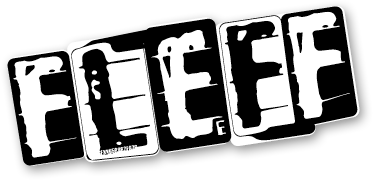
Finger Lakes Environmental Film Festival
A beehive. A coffee shop. An ant hill. A picnic. A class. A festival. What do all of these have in common? The answer, “microtopias” is the theme of this year’s Finger Lakes Environmental Film Festival. The fifteenth annual film festival, hosted by Ithaca College and downtown theater Cinemapolis, will start March 25 and go through April 1, featuring films, art work, music, performance, readings, talks and much more.
Co-directors Patricia Zimmermann and Thomas Shevory comprehensively described the definition of microtopias on the official FLEFF site: “Microtopias ask us to imagine the world otherwise, without constraints and limitations, to improve the immediate environment… If utopia resides nowhere, microtopias emerge everywhere. If utopia suggests perfection, microtopia defines adaptation.”
Shevory elaborated on this definition in the context of how microtopias exist globally. “Microtopias are global because they are ubiquitous,” he said. “Moments of insight, resistance, collectivity, sacrifice, commitment, and recognition, are shared across time and space in multiple complex forms, if not universally, then at least on a very wide scale.”
The concept of “microtopias” may seem extraordinarily abstract, but it comes into play in everyday life. Phil Wilde, the co-Practicum Coordinator for the festival who works directly with the interns and co-teaches the Practicum course, explained his take on the theme.
“Microtopias are small communities that we’re a part of day to day: people standing together buying coffee in the morning, the people that you ride on a bus with, the people you work with, the people that are in your class, each one of those is a small world,” Wilde said.
Co-Practicum Coordinator Ann Michel related the theme back to the overall purpose of FLEFF.
“FLEFF is a festival about ideas, it’s not a marketplace, it’s not a contest, it’s not a workshop,” she said. “By coming up with a theme of something called microtopias, which is quite abstract, and probably something most people don’t think about very often, it places an interesting complex idea in front of the audience and gives you a point of entry into looking at all the different films and events that will take place.”
The interns have an array of responsibilities during the festival including marketing, tabling, helping with guests, logistic managing, and blogging. One intern, Chloe Wilson, a sophomore TVR and Scriptwriting major, brought the theme to the level of students.
“Everyone’s microtopia is different,” Wilson said. “Microtopias are shaped by the experiences we have. It’s kind of the result of all the environments you have actively interacted with.”
Aside from intangible philosophy, there are a number of microtopia highlights that focus on the addressing the theme through art and performance. Highlights include: a Buffalo Street Books reading on the opening Sunday, March 25; the opening of the Microtopias Installation Gallery at the Handwerker Gallery on Monday; and a multimedia concert and performance at the Hockett Recital Hall on Tuesday.
The Concert for Microtopias, which is set for March 27, will feature a union of music and performance pieces, ranging from the classical compositions of Bach to the spoken poetry of Maya Angelou. Art Jones, a popular VJ that has performed all over the world, will mix in digital images with the ensemble of music and spoken word.
FLEFF interns had a session where they had a private preview of the concert — listening to some of the music to be performed.
“We heard a little sampling of piano playing from one of the professors, and it was really interesting,” Wilson said. “The variety of music that is going to be played is really cool. There’s a German lullaby, and then ‘Wade in the Water,’ so it’s completely different.”
The interns also have had the opportunity to directly contribute to the artistic side of the festival through the building of a “microtopias” sign with found materials on campus, which will be reused or recycled after the festival. Each team of interns was assigned two letters; in this way the project is a microtopia in itself – and suitably, the project is called the Microtopias Installation Project.
The word “microtopia” was coined by Zimmermann and Shevory. Zimmermann said she didn’t want to use the two separate words ‘micro’ and ‘utopia,’ but rather a combination.
“We didn’t want the concept to be ‘micro utopias’ because theoretically we determined the term utopia has been heavily criticized,” she said. “They’re kind of fantasy constructs. Micro means small and we took out the u and we had the word topia, which translates as place, so it’s the idea of looking at small places in very concrete kinds of ways.”
Zimmermann and Shevory spent a year researching the theme. Past themes have included memes, toxins, counterpoint, checkpoints and water.
“Last year we did the theme Checkpoints, which is about closing down and stopping flow, so this year we decided to go in the opposite direction and look at ways of opening up spaces,” said Zimmermann.
The choosing of a theme, which defines the annual festival, is a thorough procedure that takes serious time and research into worldly discussion and art.
“We look for conceptual ideas that are emerging and erupting, but are extremely unresolved, which propels programming that allows an audience to engage and participate,” said Zimmermann.
Check out the full schedule online at the FLEFF website.
